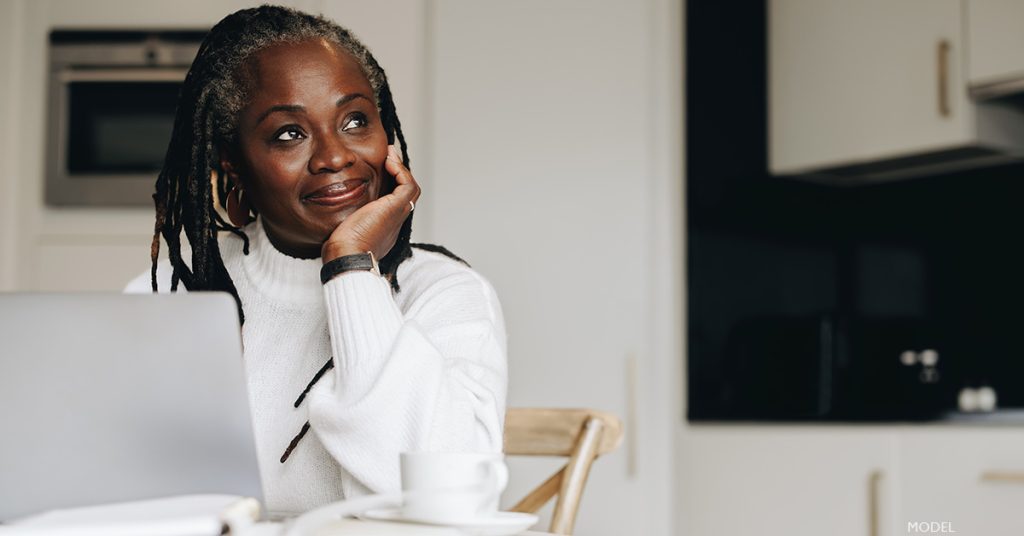Although a lumpectomy (the surgical removal of a breast lump) is one of the most common treatments for breast cancer, it’s normal to feel a little anxious about it. One of the best ways to alleviate your concerns is to talk to your breast surgeon so you can fully understand what to expect before, during, and after your procedure. Getting answers to some of the questions below may help you feel more confident and at ease before your lumpectomy.
#1. What is a lumpectomy?
During lumpectomy surgery, the cancer is removed while leaving the rest of the breast intact (versus a mastectomy, where all of the breast tissue is removed). Luckily, the vast majority of all women who present with breast cancer can be treated with a lumpectomy alone. The surgeon removes the entire lump, as well as a small amount of the surrounding healthy tissue to ensure that all of the cancer is removed.
#2. What should I expect during and after the lumpectomy procedure?
Lumpectomy surgery is usually performed as an outpatient procedure and takes about 1 hour. Make sure you ask your doctor about the specifics of your procedure, including whether they’ll use a general or local anesthetic. If they plan to prescribe pain medication for your recovery, ask for the prescription ahead of time so you can get it filled in advance. This will allow you to focus on your recovery after your surgery and have your pain medications on hand as soon as you need them.
After your lumpectomy, your breast will likely feel sore and tender and will usually have some bruising and swelling. Although most patients can go back to work within 2 to 3 days, your recovery time may vary depending on the specifics of your procedure, so it’s important to ask your surgeon about your individual recovery details.
Learn more about lumpectomy recovery in our related blog post; it may help you think of some additional issues you should discuss with your surgeon before your lumpectomy.
#3. Will I have a dent in my breast after a lumpectomy?
Ask your surgeon how much breast tissue will be removed. This is important because if a large amount of tissue needs to be removed and would leave an obvious divot, you’ll want to talk with your surgeon about how they will keep your breast looking great. Some options are having a plastic surgery consultation for potential fat grafting or another procedure.
We find that breasts generally look excellent after a lumpectomy because most of the breast tissue is left intact. It is also possible to fill in the deficit left by the lump with surrounding tissue so that the shape remains the same.
#4. What will my incisions look like?
The incisions are small and can usually be hidden in the crease below the breast, around the nipple, or in the armpit. Be sure to ask your surgeon exactly where they are putting the incision. If it is anywhere other than a hidden location, demand that they perform surgery in a cosmetically favorable way. If they say no, get a second opinion.
It’s also important to inquire about the size of the incision. Most lumps are 2 centimeters or less and can be removed through small incisions.
#5. Is radiation necessary after my lumpectomy?
Postoperatively, you might think that removing cancer with clear margins would be adequate; however, studies have shown that radiation is needed in addition to the lumpectomy. This is because the rest of the breast has an increased risk of developing a second malignancy (cancer); about 30% of women who have a lumpectomy without radiation will develop a second primary cancer within 10 years.
If your surgeon recommends post-lumpectomy radiation, find out how soon you should begin the therapy, how long it will last, what to expect during and after radiation, and whether you need to do anything to prepare for the treatment.
Lumpectomy at Bedford Breast Center
The majority of breast lumps are benign, so if you feel a lump in your breast or are told you have an abnormal mammogram, try not to get too anxious. Take a deep breath and make an appointment with your doctor or a breast specialist. They may order additional tests such as a diagnostic mammogram (which takes extra views so that the area can be more closely studied), a breast ultrasound, an MRI, or a biopsy to rule out cancer.
Here at Bedford Breast Center, our philosophy is simple: to provide the best breast care to our community. In addition to our world-class facility, we have a dedicated, compassionate, experienced team to care for you. Patients who have been diagnosed with breast cancer can expect our breast cancer doctors to provide a comprehensive treatment plan.
As for surgical procedures such as lumpectomy, patients can rest assured that incisions are minimal and placed in natural or hidden creases for the best possible cosmetic outcome without compromising the cancer cure. To discuss your lumpectomy options, please contact us using our online form or call (310) 278-8590.

